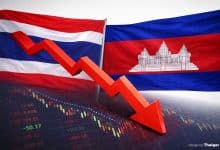Tisco ESU advises focus shift to debt instruments amid market instability

Amid global stock market turbulence, financial analysts at Tisco’s Economic Strategy Unit (Tisco ESU) are advocating that investors pivot their focus towards debt instruments for potential high-yield returns. The ongoing pressures from elevated bond yields, coupled with the weakening economies in the US and Europe, are some of the contributing factors exerting pressure on the financial markets.
The ongoing macroeconomic trends have Wall Street on eggshells, creating an environment rife with volatility. Notably, the S&P 500 index, attributing the headwinds to a drop from 4,567 to the estimated 4,250 points. The prognosis was made by Komsorn Prakobphol, at the helm of Tisco ESU’s strategy team.
“Therefore, we recommend investors reduce investment in stocks and increase weight in interesting assets such as debt instruments in order to get returns of up to 3.8% per year.”
Assessing the various asset classes, fixed income instruments are perceived as an alluring proposition by Tisco ESU for their stable interest yield potential and prospective capital gains in medium-term sluggish economic trends.
Indeed, presently, the yield for a 10-year bond in the US is at a significant 3.8% per annum, while the speculated return on stock investments or the earnings yield of the S&P 500 index is dwindling below 5%. Moreover, the earnings yield gap has dipped to a staggering 1.2%, reaching a record low in almost two decades, highlighting the alarmingly bullish stock market, Bangkok Post reported.
Komsorn pointed out that the global economy was kept afloat in recent years due to the robust continuous growth in the service sector. This growth was propelled by excessive savings resulting from government-initiated schemes such as direct cash transfers during the precarious periods of the Covid-19 pandemic. Despite soaring inflation rates and escalating commodity prices, the economy still managed to thrive.
However, Tisco ESU forecasts a potential depletion of these surplus savings, inevitably leading to decreased consumption, particularly in the service sector, during the second half of this year reported Bangkok Post.
With financial pundits speculating that the US Federal Reserve might cease augmenting interest rates, it is also anticipated that these rates will hover at high levels for a significant period.
This potentially stable bond yield environment, close to 4%, could maintain its course throughout the year and exert relentless pressure on stock valuations throughout the second half of this year.
Latest Thailand News
Follow The Thaiger on Google News:


























